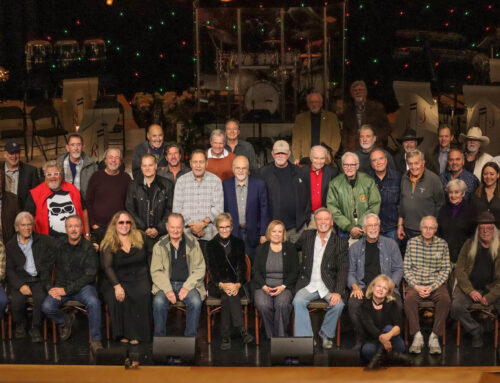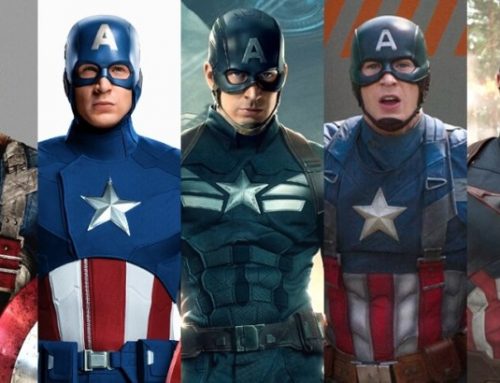When is the last time you heard of someone getting a really “big break” in the music industry through any contest, other than perhaps American Idol? That’s because most artists and songwriters are not discovered through contests, they are discovered through relationships in the industry.
Yet, there are literally hundreds of such contests out there promising thousands of dollars in prizes or a opening slot for a well-known band, or a recording label or songwriting deal — everything but the kitchen sink!
I don not, by any means, mean to say that all contests are rip-offs. There are, in fact, many legitimate contests in which songwriters and entertainers may participate. I do mean to recommend, however, that you do a bit of research and exercise some good judgment prior to sending your submission off into the digital divide.
in which songwriters and entertainers may participate. I do mean to recommend, however, that you do a bit of research and exercise some good judgment prior to sending your submission off into the digital divide.
First, there are some very simple questions to ask yourself initially as you examine these “one in a lifetime opportunities. Look at the source or sponsor of the contest. Often times, their reputation proceeds them. Have you ever personally heard of the contest sponsor? What are the credentials of the sponsoring entity? Have you read about them in any public forum such as a magazine, news article, or online resource? What successes have they achieved in songwriting and/or the music industry, if any? Who are the judges? What are their credentials. Are there any major advertising sponsorships associated with the contests? What are the prizes? Are they substantial? Answers to most, if not all, of these questions can be derived through a simple online search.
Let’s say you’ve done all of the above research and determined that the contest is sponsored by none other than MTV? To most songwriters and artists, there could be no greater sponsor than MTV, correct? But before acting too hastily, let’s move into the second phase of analysis, i.e., taking a look at the RULES.
Now, assume that you determined that since MTV was the sponsor, it must be a great opportunity, so you jump right in with both feet, or in this case, your best demo tape! A chance to open for a great headline act is waiting for the lucky winner! Unfortunately, if you did not read the fine print, you just agreed to the following:
release and hold harmless Sponsor Entities against any and all claims, injury or damage arising out of or relating to participation in this Contest and/or the use or misuse or redemption of a Grand Prize and for any claims based on publicity rights, defamation, invasion of privacy, copyright infringement, trademark infringement or any other intellectual property related cause of action. . . . (emphasis added)
This language comes straight from the rules and regulations in a ongoing “Rock the Revolution” contest sponsored by mtv2.com. See the Rules and Regulation page. This is typical hold harmless clause, which effectively negates any rights or claims you may have otherwise had to bring a civil action against MTV in the event that you are injured as a result of the contest.
In addition, MTV also states in their terms of agreement that:
The approximate retail value (the “ARV”) of the Grand Prize is $150.00. Any difference between the ARV and the actual value, if any, will not be rewarded. If, for any reason, the Grand Prize related event is delayed, cancelled or postponed, MTV reserves the right, but is not obligated, to cancel or modify the Contest in its discretion and may award a substitute prize of equal or greater value.
This effectively means that you could end up getting only $150 as the “grand prize winner” if the concert is canceled for any reason by the headlining act. A corollary effect net effect is that, at most, your damages in a civil lawsuit probably would be limited to $150, the agreed retail value (i.e., by agreeing to their terms, you and MTV agreed to this amount).
Finally, by simply clicking the “I Agree” button on your web browser without first reading the fine print, you also agreed to grant MTV a non-exclusive right, among other things, to record your submission by virtue of the fact that you are a finalist? See this clause from a real contest:
Finalists and Winner agree that by entering into this Contest they are granting MTVN. . . the non-exclusive, irrevocable right and license to exhibit, broadcast, copy, reproduce, encode, compress, encrypt, incorporate data into, edit, rebroadcast, transmit, record, publicly perform, create derivative works of, and distribute and synchronize in timed relation to visual elements, the Submission Materials and/or any portions or excerpts thereof, in any manner, an unlimited number of times, in any and all media, now known or hereafter devised, throughout the world, in perpetuity. . . .
While this is non-exclusive license, meaning that you can issue other non-exclusive licenses to third parties, it does give MTV pretty broad rights to use your submission in almost any form they want. This doesn’t necessarily mean that you shouldn’t participate in this contest, it is just something you should certainly understand and use in weighing your decision.
Believe it or not, this grant is pretty tame compared to the language of other contests I have reviewed for clients. I’ve seen situations where a contestant ostensibly assigns the copyright in a song submitted for a contest to the sponsor. So beware. Make sure there is something in the rules that indicates that you are not transferring any rights or licenses in the submission.
These are just few examples of some of the lawyerly devices that can be utilized in the rules and regulations of a contest, particularly an online contest which a “click agreement” in place. Before you submit your intellectual property, it is probably worth the money to pay a few hundred dollars to an entertainment attorney to advise you as to what the legal ramification are for you and/or your band.






